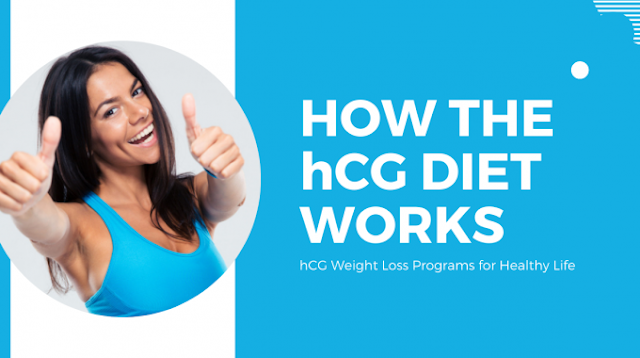Are you one of the
millions of individuals who want to lose weight and get healthier?
Have you jumped from diet after fad diet only to end up in
disappointment? We all know that obesity has become a widespread
epidemic and the accompanying medical complications caused by being
overweight or obese is just as prevalent. Being overweight and obese
can lead to many serious diseases such as diabetes, heart disease,
stroke and some types of cancer. So losing that weight is very
crucial to your health.
One diet that has
gained much attention in the recent years is the HCG diet . The diet
has been around since the 1950s when it was developed by Dr. ATW
Simeons. It works on the premise that hCG or Human Chorionic
Gonadotrophin makes use of stored fat for energy. How exactly does it
do this?
. The diet
has been around since the 1950s when it was developed by Dr. ATW
Simeons. It works on the premise that hCG or Human Chorionic
Gonadotrophin makes use of stored fat for energy. How exactly does it
do this?
The hCG is normally
present at elevated levels in pregnant women during the early stages
of pregnancy then drops as the pregnancy progresses. The timing of
these increased levels occurs during the time when a woman still does
not know that she is pregnant and is unlikely to be consciously
“eating for two.” In the presence of hCG, a pregnant woman’s
fat stores are mobilized to be used to nourish the fetus. This
ensures that the fetus receives the necessary amount of calories and
nutrients it needs for proper growth and development regardless of
the pregnant woman’s caloric intake. Dr. Simeons also discovered
that boys being treated for underdeveloped gonads with hCG ate less
and as a result lost weight. This prompted him to explore hCG as a
diet aid.
Both men and women
can benefit from the HCG diet . The hormone increases your ability to
burn fat allowing your body to use this stored fat as energy. At the
same time, it curbs your appetite so you eat less. This translates to
1 to 2 pounds lost per day.
. The hormone increases your ability to
burn fat allowing your body to use this stored fat as energy. At the
same time, it curbs your appetite so you eat less. This translates to
1 to 2 pounds lost per day.
The HCG diet requires you to take daily shots or oral drops of hCG for at least 23
days. Depending on your response, you may undergo another round of
treatment. Aside from the shots or drops, you are only allowed a very
restricted caloric diet of 500 calories per day. You may think how
can you possibly survive on just 500 calories a day? Won’t you go
hungry? The 500 calories a day is the only amount you will need
because the fat that is mobilized by the hCG is what you will be
essentially using for energy. As long as stored fat is continuously
released in the body, 500 calories is all you need to sustain you
throughout the day. It is important that you consume a diet high in
protein and low in carbohydrates and fat content.
requires you to take daily shots or oral drops of hCG for at least 23
days. Depending on your response, you may undergo another round of
treatment. Aside from the shots or drops, you are only allowed a very
restricted caloric diet of 500 calories per day. You may think how
can you possibly survive on just 500 calories a day? Won’t you go
hungry? The 500 calories a day is the only amount you will need
because the fat that is mobilized by the hCG is what you will be
essentially using for energy. As long as stored fat is continuously
released in the body, 500 calories is all you need to sustain you
throughout the day. It is important that you consume a diet high in
protein and low in carbohydrates and fat content.
Once you have lost
the weight after the round of treatment, you will have to adopt a
healthy lifestyle and way of eating. The whole purpose of the HCG diet is to correct poor eating habits and break any food addictions.
The one month or so of treatment will allow you to achieve this. You
lose a significant amount of weight in a short span of time and learn
to keep it off.
is to correct poor eating habits and break any food addictions.
The one month or so of treatment will allow you to achieve this. You
lose a significant amount of weight in a short span of time and learn
to keep it off.
If you have tried
every fad diet there is and have been unsuccessful, then maybe it’s
time you try another alternative. The HCG diet is safe and effective
and may be the solution to your weight loss struggles.
is safe and effective
and may be the solution to your weight loss struggles.
